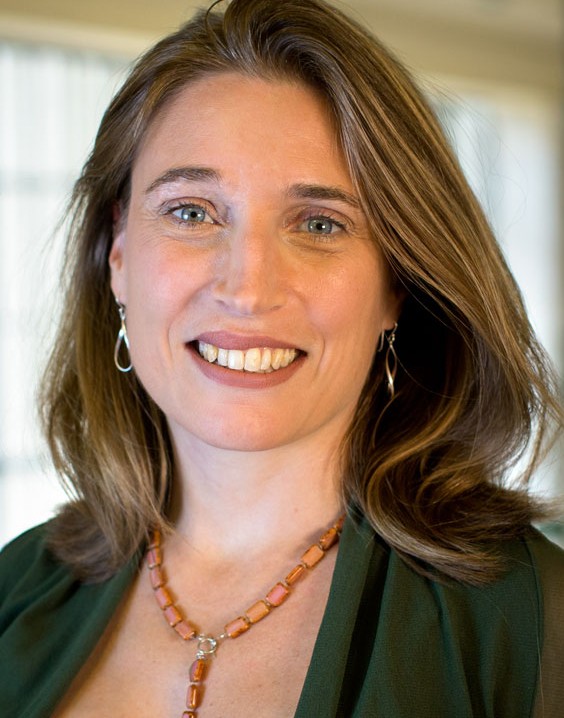Van Vliet named vice president for research and innovation
By James Dean, Cornell Chronicle
Krystyn J. Van Vliet, an internationally accomplished materials scientist and engineer now serving as associate provost and associate vice president for research at the Massachusetts Institute of Technology, will join Cornell as vice president for research and innovation, the university announced Aug. 25.
The Executive Committee of the Cornell Board of Trustees approved Van Vliet’s five-year appointment, which will start Feb. 1, 2023, and her appointment as a professor in the College of Engineering. She will succeed Emmanuel P. Giannelis, the Walter R. Read Professor of Engineering in the College of Engineering.
“Professor Van Vliet is a highly distinguished scientist and scholar with deep expertise in areas key to our research enterprise,” said President Martha E. Pollack. “She brings a stellar record of academic leadership and achievement, as well as the strategic vision to further expand the innovation, impact and distinction of research at Cornell.”
Added Provost Michael I. Kotlikoff: “Krystyn Van Vliet is not only an outstanding researcher and faculty member, she’s built innovative programs and fostered important collaborations with partners in academia, government and industry. She’ll help guide our next steps as we continue to make progress and explore these kinds of partnerships, and further unify the campus in that effort.”
Kotlikoff thanked Giannelis for his leadership of the Office of the Vice President for Research and Innovation (OVPRI). Since taking the role in 2017, he said, Giannelis has promoted entrepreneurship throughout Cornell; strengthened world-class research centers; and developed closer ties between the Ithaca campus and Weill Cornell Medicine and Cornell Tech in New York City.
“Emmanuel has made a major contribution to the university, helping us pivot to a more balanced focus on both research and innovation,” Kotlikoff said.
Pollack concurred, noting that “Emmanuel has emphasized a ‘One Cornell’ approach, bringing our campuses closer together in our research mission, and has fostered an increased focus on entrepreneurship and technology transfer. As he returns to his full-time faculty role, he leaves Cornell’s research enterprise in a robust position.”
Van Vliet said she’s excited to support faculty, researchers and students engaged in Cornell’s wide breadth of scholarship. She looks forward to forging interdisciplinary collaborations with diverse stakeholders – from academia and government agencies to companies and investors – to continue developing a research ecosystem that both generates new knowledge and translates discoveries into impact, whether through commercial startups or by helping patients.
“Cornell has an outstanding reputation for scholarly research and creative people who care about making an impact on the bigger world,” Van Vliet said.
As vice president for research and innovation, Van Vliet will oversee research on the Ithaca and Cornell Tech campuses, and technology transfer and innovation across the university, which in 2020 received $1.19 billion in total research funding – ranking 12th nationally and No. 1 in state research expenditures, according to OVPRI. She’ll also oversee more than 20 multidisciplinary research centers and several accelerators and incubators.
At MIT, where she earned her doctorate in materials science and engineering in 2002 and joined the faculty in 2004, Van Vliet has held senior roles as the Michael and Sonja Koerner Professor of Materials Science and Engineering and Biological Engineering, and as an administrator and entrepreneur.
Her research lab specializes in material chemomechanics – the coupling between chemistry and mechanics at material interfaces. Applications include optimizing materials for renewable energy and developing new materials and methods for cell therapies and drug screening.
Van Vliet is the lead principal investigator of a team of more than 50 researchers in Singapore and at MIT working to address bottlenecks in manufacturing cell and gene therapies targeting cancer and tissue-degenerative diseases.
In addition, Van Vliet has coordinated MIT involvement in a range of public-private partnerships. From 2012-14, she was MIT’s faculty co-lead supporting the White House’s Advanced Manufacturing Partnership 2.0 initiative seeking to accelerate manufacturing innovation in the U.S.
“I’m very comfortable working with diverse groups to figure out paths to better communication, better processes and better outcomes – focusing on the big picture and laying the groundwork to achieve it,” Van Vliet said. “I really enjoy connecting all those dots and making those connections as low-friction as possible.”
As an associate provost at MIT since 2017, Van Vliet has overseen campus building use, renovation and construction, including managing the pandemic’s impact on operations. She also oversees MIT’s Office of Strategic Alliances and Technology Transfer, which she helped launch in 2019 as part of a re-imagined approach to research administration. The office includes technology licensing and corporate relations, and facilitates research with non-federal partners.
As MIT’s first associate vice president for research, Van Vliet has worked with MIT’s new Research Administration Services and adjacent offices to provide more efficient research grant and contract processes, and better research development and communication tools: supporting lab and center operations across disciplines, from computing to humanities.
Van Vliet is co-chair of the National Academies decadal survey that will recommend priorities for biological and physical sciences research in space through 2032. She is the scientific co-founder of Artificial Axons Lab, an MIT startup; has authored or co-authored more than 250 research papers in peer-reviewed journals; and holds several patents.
After receiving her doctorate from MIT, Van Vliet completed her postdoctoral research at Boston Children’s Hospital. She earned a bachelor’s degree in materials science and engineering, with a minor in biomedical ethics, from Brown University in 1998.
Media Contact
Get Cornell news delivered right to your inbox.
Subscribe

